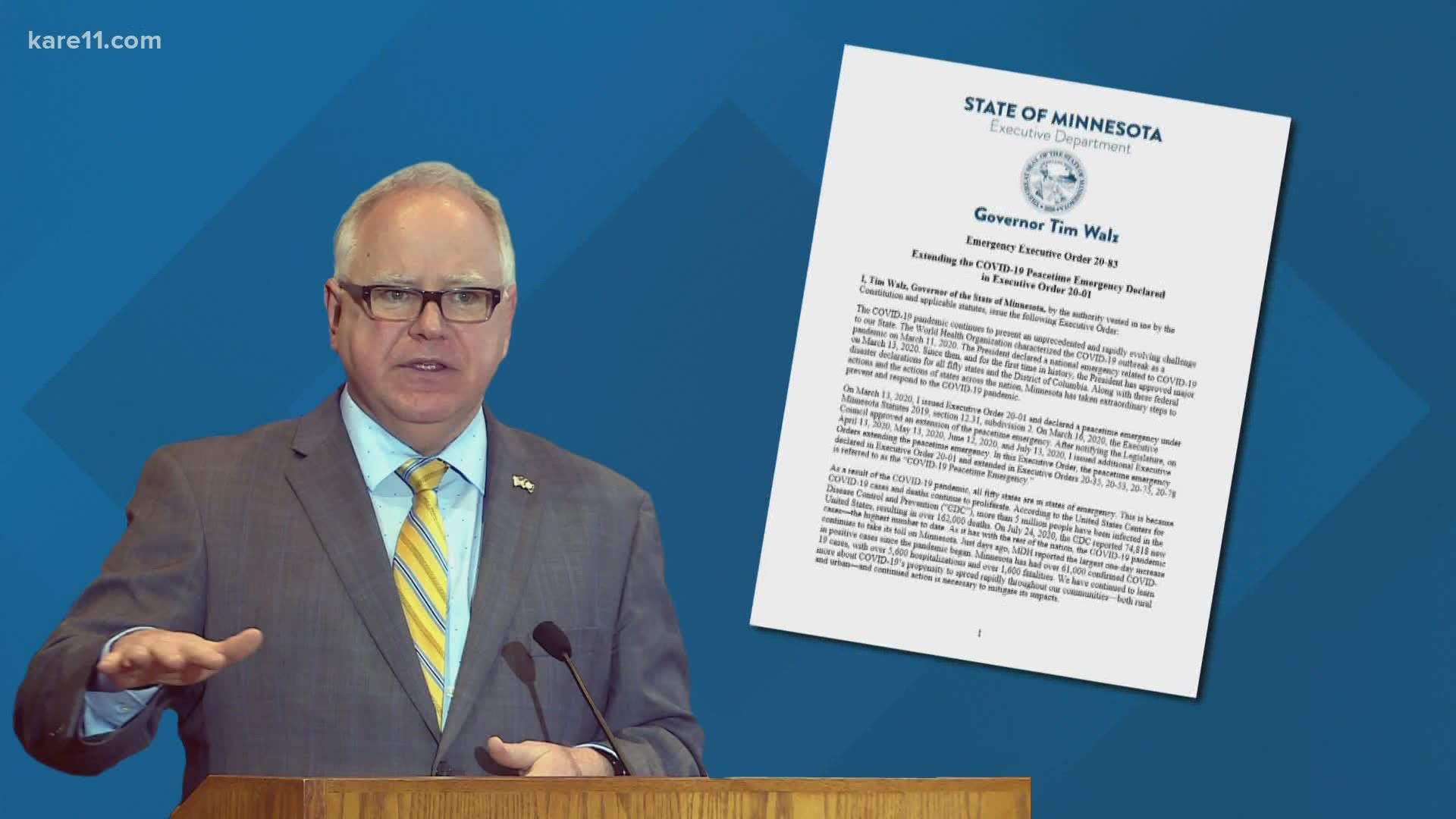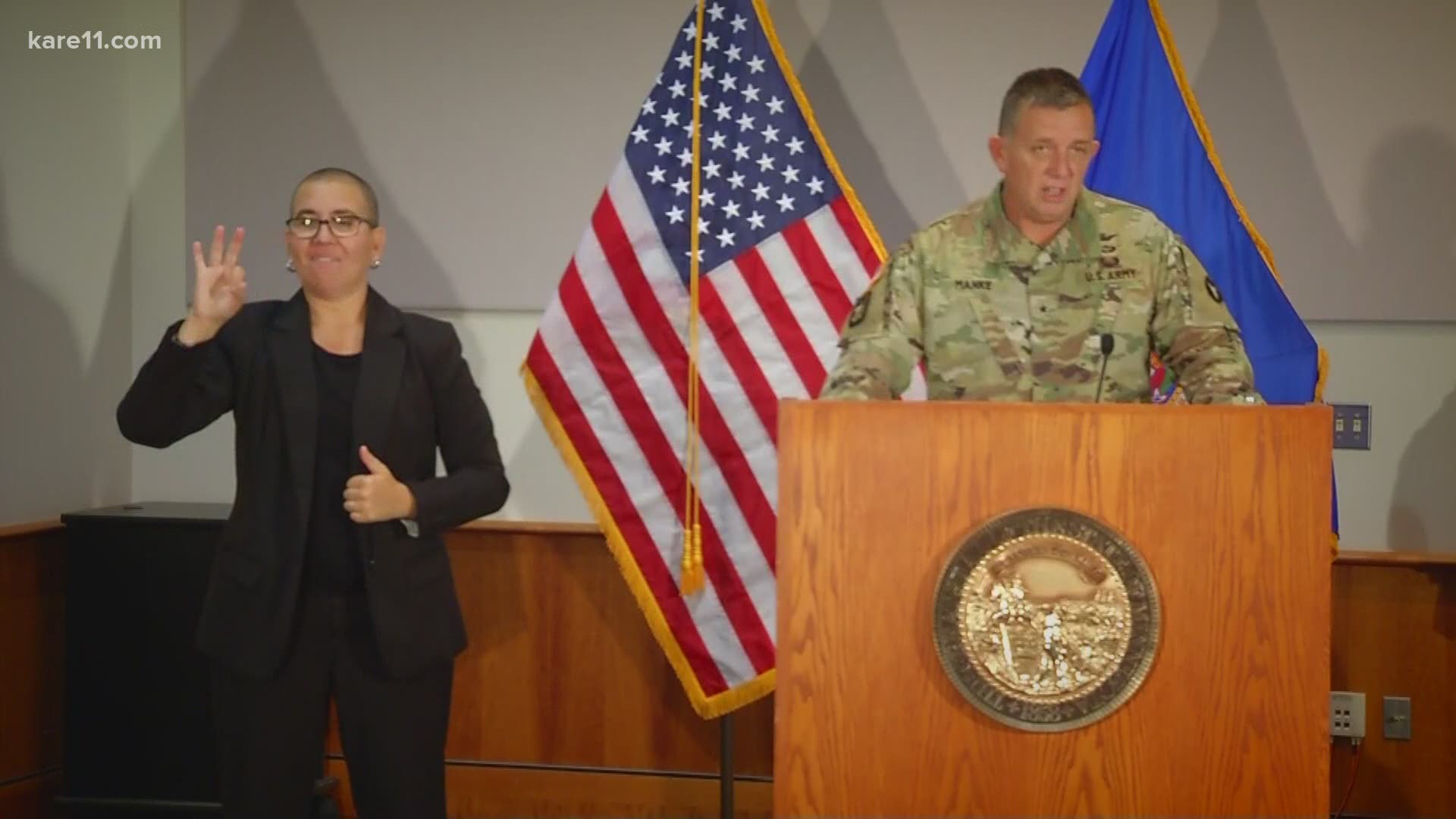ST PAUL, Minn. — The COVID crisis may still require taking swift action without waiting for legislative consent, as Gov. Walz sees it.
With that in mind on Wednesday, Walz extended Minnesota's peacetime emergency through September 11, which temporarily gives him extra executive powers to respond to the impacts of coronavirus on the state.
"I have determined that the COVID-19 pandemic, an act of nature, continues to endanger life and property in Minnesota, and local resources are inadequate to address the threat," Walz wrote in his executive order.
"The COVID-19 Peacetime Emergency must therefore continue."
Each time he extends the emergency it opens the door for state lawmakers to strip those emergency powers. And that's the main reason the governor called the Legislature back to the State Capitol Wednesday for the third special session of the summer.
And, for the third time this summer, the Republican-controlled Senate and the DFL-controlled House didn't see eye to eye on that question. The Senate voted to end Walz's special powers, House rejected a motion to bring the issue to the floor for a debate.
DFL House Speaker Melissa Hortman told reporters earlier in the day the governor still needs the power to act unilaterally, and virtually every other governor in the nation is also working with some type of emergency declaration.
"The pandemic is not done in our country yet, we need to get control the virus so we can get to a point where we can get things restarted," Rep. Hortman remarked.
"But we’re not there yet. And for that reason, the governor still needs to have this emergency authority to make fast decisions."
GOP Senate Majority Leader Paul Gazelka said the Legislature can't be left out of important decisions when it comes to COVID-19, or the civil unrest sparked by the killing of George Floyd on Memorial Day.
"It’s about letting us do our job as the legislative branch alongside the governor so that he can make better decisions, because he’s made a bunch of them that have not been good," Sen. Gazelka told colleagues.
"Think about the time he said 50 people can be in a bar, that’s okay, but if you go to church only 10 people can go there. And don’t you dare sing!"
He said the death tolls projected by the pandemic modeling Walz and his team used initially missed the mark by quite a bit.
Democrat Matt Klein, who is also a physician at Hennepin Healthcare in Minneapolis said Republican lawmakers can't be trusted to lead the way on COVID-19.
"It is clear that if we had not been rescued by Governor Walz’s executive authority this Senate would’ve thrown Minnesotans into the furnace of a blazing pandemic," Sen. Klein declared during the floor debate.
"To rescind the governor’s executive powers and give Republicans control over our path forward? No thank you!"
The debate over the governor's powers paled in comparison to the shock waves that reverberated from the Capitol later in the day when the Senate fired a member of Walz's cabinet, Labor and Industry Commissioner Nancy Leppink.
She had already been targeted for removal by Senate Republicans, who felt Leppink was too inflexible when enforcing new business regulations. But very few people knew that Republican leaders would take up her confirmation vote during Wednesday special session.
DFL senators called it an "ambush" and were outraged about being blindsided by the timing of the vote. Walz suggested it was political payback because he hasn't relinquished his emergency powers.
It had been 12 years since the Senate booted a cabinet member.
In 2008 the Senate, then controlled by Democrats, voted not to confirm Lt. Gov. Carol Molnau for a second term as transportation commissioner -- Molnau held both jobs in the Tim Pawlenty administration.
It came in the wake of the 35W Bridge collapse, but also played out against a longstanding feud between Democrats and Pawlenty over whether to raise fuel taxes in Minnesota.


